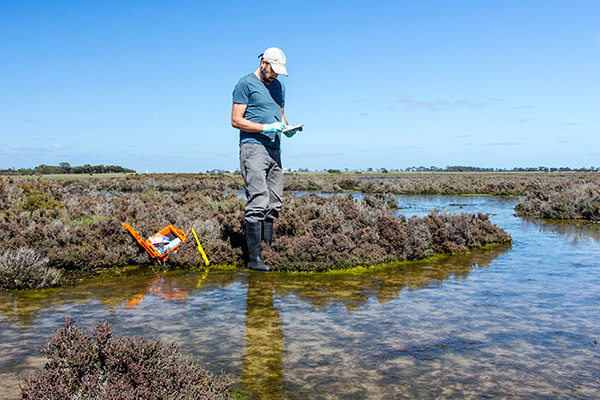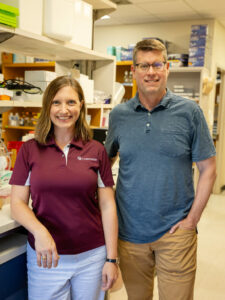Texas A&M Center for
Environmental Research (TiCER)
Enhancing public health by identifying, understanding, and reducing adverse environmental health risks

Vision
The vision for the Texas A&M Center for Environmental Health Research (TiCER) is to nucleate environmental health research and translational activities of investigators around the overarching theme of “Innovative solutions for addressing exposure-stressor interactions. Overall, TiCER will expand the established investigator base and expertise in cross-cutting environmental health science research to increase its impact in Texas and beyond.
A Framework for Environmental Health Research at Texas A&M

Themes
TiCER is organized around two research themes to facilitate the exchange of ideas and the development of novel experimental approaches. Cross-disciplinary collaborations lead to high-impact discoveries that identify common exposure and disease interests. The themes are:

Cores
The center also aims to enhance research capacity, integration, and translation by facilitating research across mechanistic, individual, and inter-individual scales with an integrated set of cores that bridge technologies, capabilities, and expertise. The three cores are:

Pilot Projects
Through Pilot Projects, TiCER promotes new and innovative research motivated by community and stakeholder interests from individual investigators or cross-disciplinary teams. The aim is to support junior faculty and stimulate new investigations by senior investigators.
The program provides funding, access to facility cores, and intellectual support for outstanding and innovative research projects. Pilot projects must address one of the two major research themes of the center.
News
- Yu discusses the rising threat of urban wildfires with Texas A&M TodayTo understand the unprecedented devastation and the unique challenge of mitigating wildfires in urban areas, Texas A&M Today spoke with two experts from the Department of Landscape Architecture and Urban Planning in the College of Architecture.
- Choudhury discusses toxins in beauty products with Texas A&M TodayColorless, odorless plasticizers called phthalates (pronounced “THAL-ates”) are used extensively in cosmetics, personal care items and products that encounter plastics during manufacturing or packaging.
- Porter honored as Agrilife Faculty FellowWeston Porter, PhD, was honored with the Agrilife Faculty Fellow award. He is also the director of the National Institutes of Environmental Health Sciences (NIEHS) P30 Texas A&M Center for Environmental Health Research (TiCER).
- TiCER returns to VMBS with new $7.6M NIEHS grantTiCER, a NIEHS Environmental Health Sciences Core Center, will be returning to the Texas A&M VMBS with a $7.6 million grant for the center’s new funding cycle.
Events
- 2026 Annual Spring Symposium – Tuesday, Feb. 102026 Annual Spring Symposium Stress and Metabolism Tuesday, Feb. 10 | 1–5 p.m. Hagler Auditorium | Annenberg Presidential Conference CenterThe Bush School of Government &…
- TiCER 2025 Spring Symposium – Monday, April 7, 2025TiCER 2025 Spring Symposium – Monday, April 7, 2025 Circadian Rhythm and Environmental Stressors 1–5 p.m. | Reception (with heavy appetizers) following Hagler Auditorium |…
Research
- Pilot Project 4Factors that Contribute to Public Perceptions on Environmental Health Threat Policy. Investigators: Carol Goldsmith, Ki Eun Kang, and Arnold Vedlitz.
- Pilot Project 3Support to Environmental Policy and its Association with Objective and Perceived Risk of Exposure. Investigators: Carol Goldsmith, Ki Eun Kang, and Arnold Vedlitz.
- Pilot Project 2Public support for environmental policy: Testing mitigation of health hazards using regression and machine learning models. Investigators: Rotem Dvir and Arnold Vedlitz.
- Pilot Project 1Worried (and) Sick: How environmental hazards affect Americans’ health-related risk attitudes. Investigators: Rotem Dvir, Arnold Vedlitz, and Xinyue Ye.








